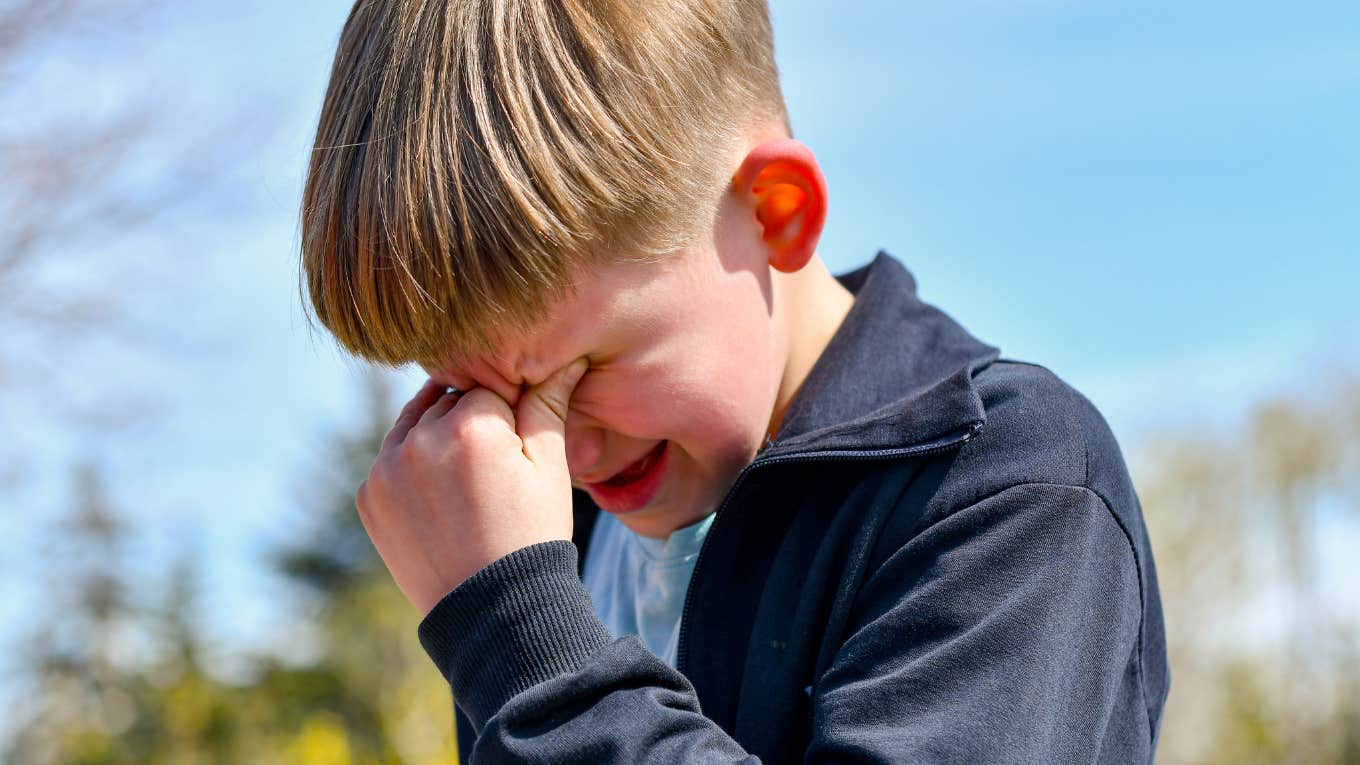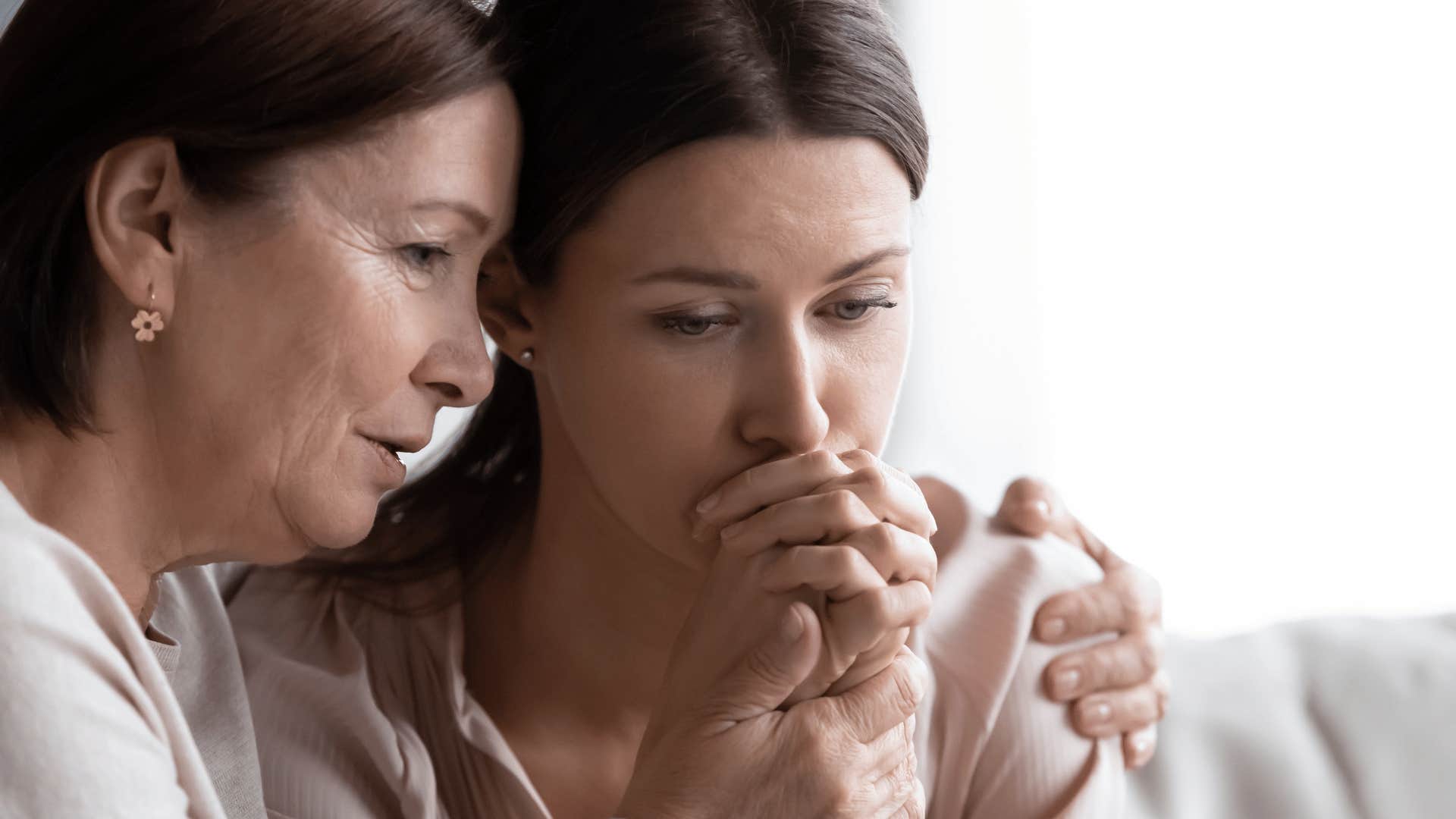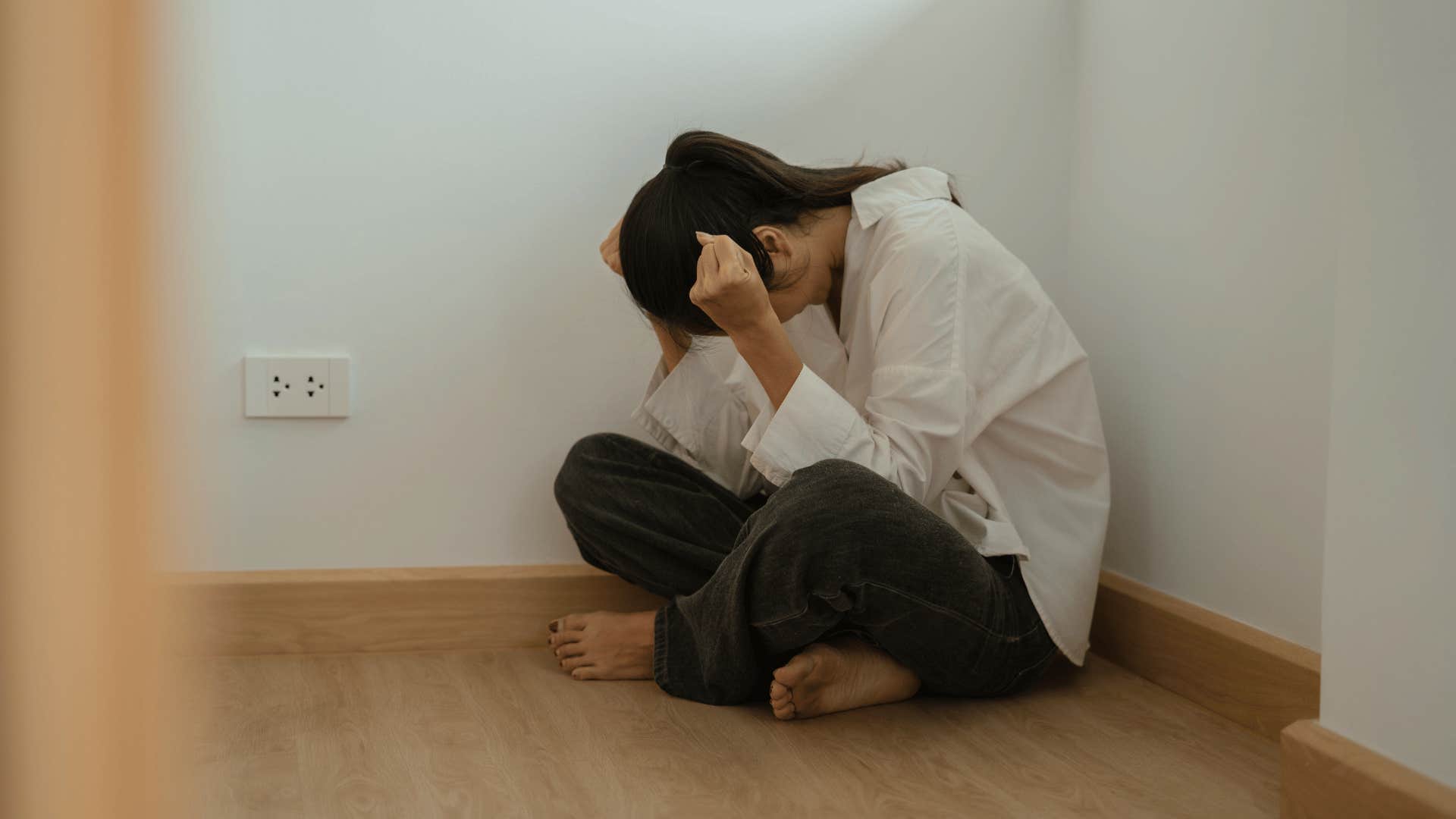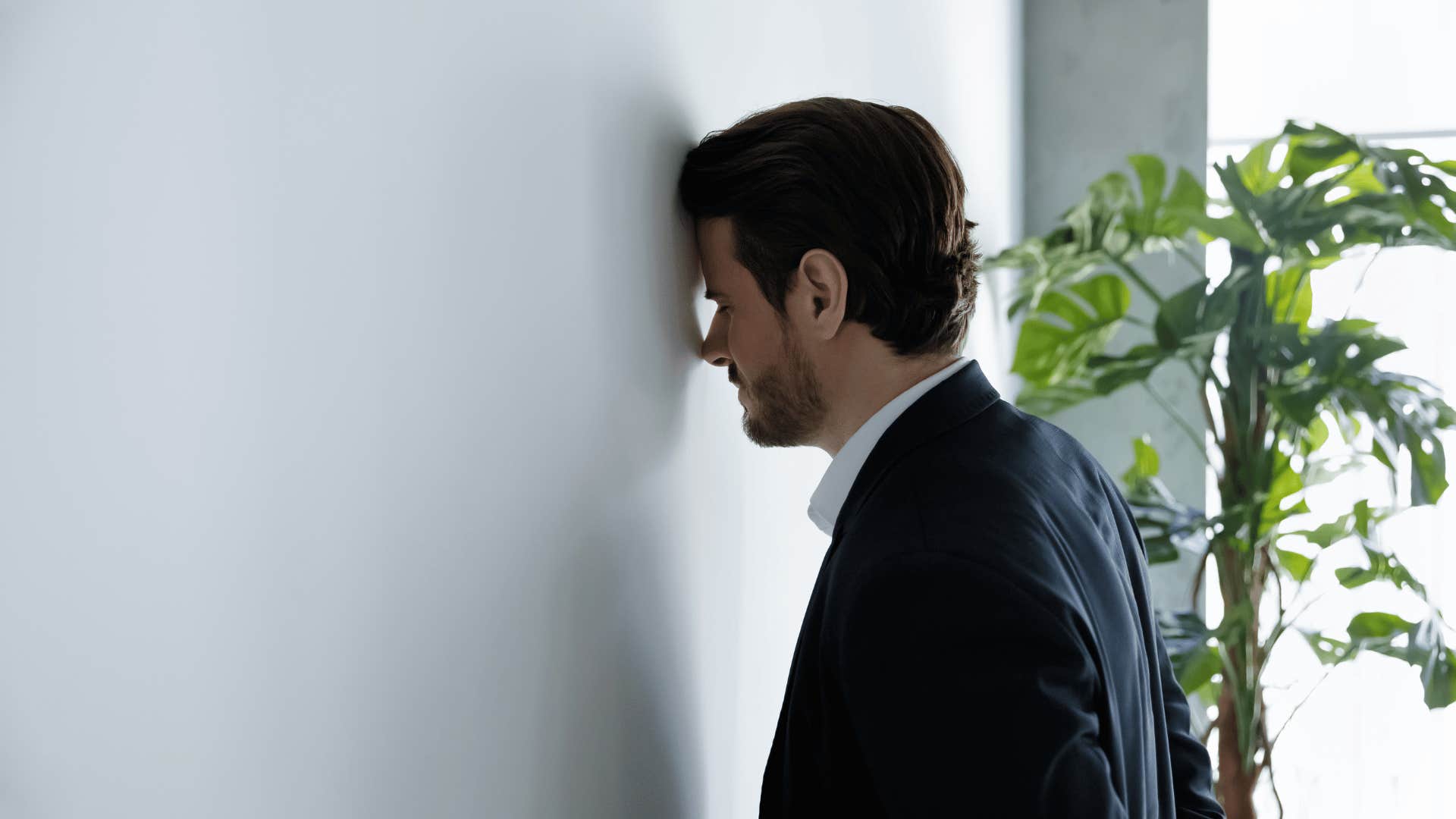12 Signs You Were Emotionally Abused As A Child, Ranging From Low Self-Esteem To Perfectionism
How your childhood affects your adult life.
 Andov | Canva
Andov | Canva Have you ever wondered why you act a certain way? You may find it hard to make new friends or trust in relationships. Maybe you’re prone to outbursts of anger in response to the tiniest things, or, perhaps you tend to completely avoid confrontation and fights at all costs, holding all of your feelings inside until you feel like you’re going to burst.
Chances are it’s learned behavior in response to the way you were raised. The experiences we have as children can directly influence almost every aspect of their adult lives, from interpersonal relationships to their sense of self, and nowhere is that more obvious than in people who have been victims of childhood emotional abuse.
“Past abuse can influence your ability to trust others, make friends, and have relationships that are not exploitive. Adult survivors are often isolated and are less satisfied with their relationships than adults who were never abused.” explains health psychologist Kathleen Kendall-Tackett.
While there are numerous different ways childhood emotional abuse can manifest in someone as they age, there are a few signs that research has repeatedly identified which tend to indicate you may have experienced some form of emotional abuse as a child.
The good news? Identifying your issues is the first step to healing from them. If you find yourself nodding along with the following emotional abuse signs, it’s worth booking in to see a therapist, who can help you work through past trauma and develop healthier coping mechanisms.
Here are signs you were emotionally abused as a child:
1. You apologize all the time
 fizkes / Shutterstock
fizkes / Shutterstock
If you were emotionally abused as a child, you might have been made to feel like you could never do anything right, and so as an adult, you’ll often find yourself apologizing for things, even in situations in which you haven’t done anything wrong.
2. You have attachment issues
 Prostock-studio / Shutterstock
Prostock-studio / Shutterstock
You might have abandonment issues, always fearing people will leave you, or get sick of you. This usually occurs in people who were neglected as children or had an absent or emotionally unavailable parent.
3. You find it extremely hard to get close to people
 Wasana Kunpol / Shutterstock
Wasana Kunpol / Shutterstock
If you have been emotionally abused, especially by a family member or someone you trusted. you might be scared of getting close to people or letting someone into your life, in an attempt to protect yourself from being hurt again.
4. You don’t know how to accept compliments
 MDV Edwards / Shutterstock
MDV Edwards / Shutterstock
If you were constantly told negative things about yourself while you were growing up, it may be hard to believe someone when they compliment you. You may not believe them or dismiss the positive comment completely.
5. You second-guessing everything
 fizkes / Shutterstock
fizkes / Shutterstock
When you have lived in a chaotic world filled with emotional abuse, you may find it hard to trust in anything. If something good happens to you, you’ll question how long it will last, or find yourself always second-guessing your decisions and relationships.
6. You always try to people-please
 Yuri A / Shutterstock
Yuri A / Shutterstock
People who were told they weren’t good enough as children or had to placate the adults in their lives to avoid outbursts of abuse or anger often grow up to be chronic people-pleasers.
7. You’re terrified of conflict and confrontations
 Prostock-studio / Shutterstock
Prostock-studio / Shutterstock
Victims of verbal forms of abuse will often be terrified of confrontation, and so as they grow up, will attempt to avoid conflict at all costs. If this sounds like you, the idea of a confrontation generally induces immense anxiety and will activate the fight-or-flight response — and you’ll almost always choose flight.
8. You’re incredibly indecisive
 KomootP / Shutterstock
KomootP / Shutterstock
If part of your childhood abuse was being made to feel like you always did the wrong thing, or could never live up to expectations, you might find it difficult to make concrete decisions as an adult, because you’re still terrified of getting it wrong and the consequences of choosing the incorrect option.
9. You ask obvious questions
 Prostock-studio / Shutterstock
Prostock-studio / Shutterstock
Victims of abuse will often doubt themselves — and their relationships. This can result in an insatiable need for validation, sought through the asking of obvious questions such as, “Do you still love me?” and “You’re not going to leave me, are you?” in an attempt to maintain a sense of security.
10. You have extremely low self-esteem
 THICHA SATAPITANON / Shutterstock
THICHA SATAPITANON / Shutterstock
One of the most common effects of childhood abuse is extremely low self-esteem. Children who are repeatedly told they’re worthless or not good enough can end up believing these messages and internalize them, resulting in low self-worth in adulthood.
11. You’re self-deprecating
 Perfect Wave / Shutterstock
Perfect Wave / Shutterstock
Because you were raised to believe you always did everything wrong, as an adult, you end up constantly putting yourself down, or emotionally bashing yourself for every mistake, long after the spilled milk has been cleaned up.
12. You’re a perfectionist
 fizkes / Shutterstock
fizkes / Shutterstock
Victims of childhood abuse will often feel the need to prove their worth as adults and obsess about doing a task to perfection to overcompensate for their sense of failure as children.
If you think you may be experiencing depression or anxiety as a result of ongoing emotional abuse, you are not alone. Domestic abuse can happen to anyone and is not a reflection of who you are or anything you've done wrong.
If you feel as though you may be in danger, there is support available 24/7/365 through the National Domestic Violence Hotline by calling 1-800-799-7233. If you’re unable to speak safely, text LOVEIS to 1-866-331-9474.
Kassi Klower is a freelance writer and journalist and was SHESAID's Global Editor.

